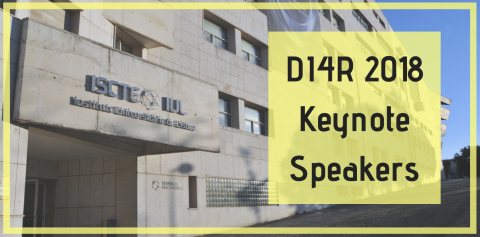
We proudly present this year's keynote speakers, who will share knowledge on a variety of topics ranging from data challenges in climate change to quantum information processing. Take a look at our programme for an overview of the keynotes, the scheduled times and the abstracts.
We have asked the speakers to share a quote with us, on their expectations of DI4R 2018, a teaser of their keynote, or any other impactful sentence they would like to share to create curiousity.

Professor Mike Payne, Computational Physics at University of Cambridge, TCM Group, Cavendish Laboratory
"Technology transfer of academic software to industry should be straightforward and (almost) universal - so why is it not and what can we do about it?"

Dr. Kristel Michielsen, group leader research group “Quantum Information Processing” at the Jülich Supercomputing Centre & Professor in Quantum Information Processing at RWTH Aachen University
"Quantum computing should be based on facts, not on myths."

Jose Manuel Gutierrez, CSIC research professor; IPCC Coordinating Lead Author
"Climate prediction is one of the most computationally demanding applications due to the huge simulations required. Nowadays, data-centric applications pose new challenges for research infrastructures."

Prof. Dalia A. Conde Ph.D., Director of Science, Species360, SDU (University of Southern Denmark)
"It is an incredible opportunity to be at DI4R to exchange ideas and expand collaborations to develop, integrate & transform digital information to overcome one of the biggest challenges: the biodiversity crisis."

Alexis Joly, INRIA Sophia-Antipolis – ZENITH Team
"During my talk at DI4R, I will introduce the PlantNet platform and the latest distributed deep learning experiments we've achieved at the scale of the world's flora."
Dr. Michael W. Wise, Head of the Astronomy Group, ASTRON (Netherlands Institute for Radio Astronomy)
“The Square Kilometre Array will be the world’s most powerful radio telescope and has the potential for transformational discoveries in fundamental physics and astronomy. To unlock that potential, however, we need to harness the power of a global digital infrastructure and make it a seamless part of the instrument for researchers.”



